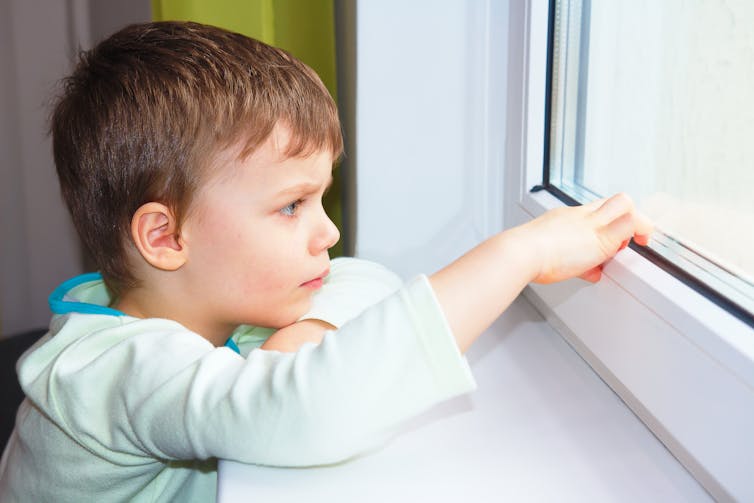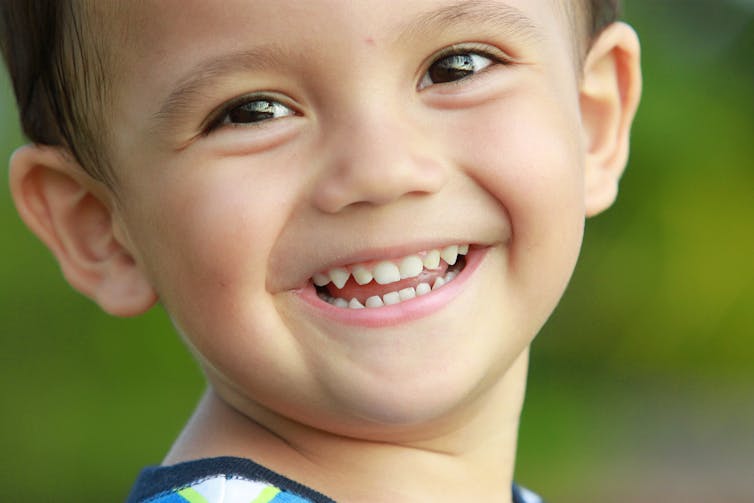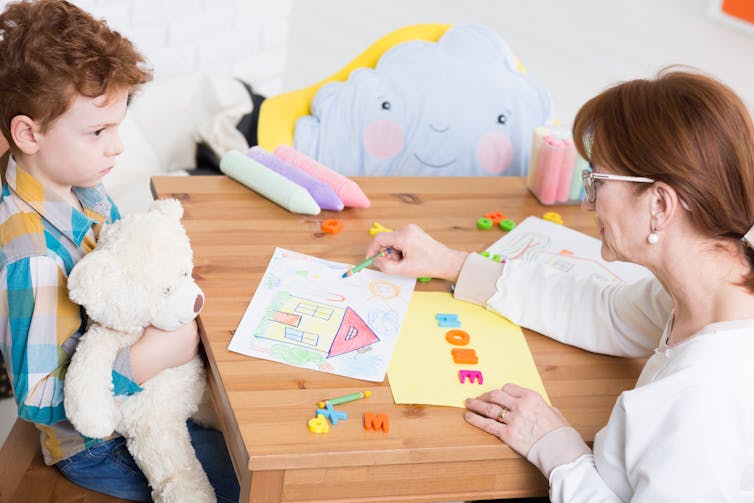Raising a child is often one of the most challenging and joyous events in a person’s life. Watching your child grow and develop is a source of delight. However, some parents become concerned when their child appears to develop differently than others.
At times, parents may worry about the possibility of autism spectrum disorder, or ASD.
As an associate professor and registered psychologist in the Werklund School of Educationat the University of Calgary, I specialise in diagnostic assessment of ASD for individuals from toddlerhood to adulthood.
Many families speak to me of their concerns (or others’ concerns) for their child and wonder about the possibility of ASD.
I have found that informing parents of the symptoms of ASD can help them decide if their worries are warranted. As well, many parents are unaware of how the disorder is currently characterized and therefore struggle to understand if an assessment may benefit their child.
Individual symptoms are unique
ASD is, according to the description used by most clinicians in North America, a “neurodevelopmental disorder” — meaning it becomes apparent during a child’s early development and results in difficulties with their personal, social, academic or occupational functioning.
Those with ASD typically demonstrate symptoms by two to three years of age. However, many will display signs earlier in development and ASD can be reliably diagnosed around 18 months of age.

Individuals must demonstrate challenges in two domains of functioning: 1) social communication and 2) restricted and/or repetitive patterns of behaviour.
Importantly, individuals with ASD are seen to fall on a “spectrum,” meaning that they can experience a range of difficulties within each domain. This means that each individual’s specific symptoms will be unique.
Social communication challenges
Within the social communication domain, children may demonstrate a delay in speech development — either by using no single words by 18 months or no two- to three-word phrases by 33 months of age.
They may fail to direct others’ attention (e.g., by pointing or eye contact), follow another’s point or respond to their name. Sometimes they lack, or have limited skill with, pretend play.
Other signs could include reduced interest in playing with peers, not showing or bringing objects to others to share an interest, smiling infrequently at others or failing to gesture to express their needs — for example by nodding or raising their arms to be picked up.

Many children who receive an ASD diagnosis do not imitate others’ behaviours. For example, they might not wave back to someone who waves at them. Or they struggle to understand others’ language or show a limited range of facial expressions.
Sometimes they use others’ hands as a tool — for example, using a parent’s hand to point at pictures in a book rather than pointing themselves. And they may echo others’ words rather than using their own language to express needs or wants.
Repetitive patterns of behaviour
Regarding restricted/repetitive patterns of behaviour, some children show a strong preference for, or aversion to, sensory stimuli. For example, a child may crave visual input by staring at a fan for a long periods of time. Or they may be overly distressed by typical household noises, haircuts or being touched.
Children often become attached to specific objects — such as a block or a notebook that they must carry around with them — yet show little interest in toys. They can become intensely interested in things like door knobs or toilet seats, or become obsessed with a familiar cartoon character or toy.

They may repetitively wave their arms or hands, rock or spin when excited. Some children repeat actions over and over, such as turning a light switch on and off. Some focus on small parts of an object (the wheel of a toy car) rather than the entire object (the car).
Others may insistently line objects up — such as toys or family members’ shoes — and become distressed if the objects are moved. They may be aggressive towards others or may injure themselves. They often crave predictability and struggle when their routines are disrupted.
Early identification is key
Importantly, no single symptom is necessary or sufficient for a diagnosis. However, more symptoms do increase the potential for a diagnosis.
As well, many children display symptoms consistent with ASD yet grow out of them naturally and do not receive a diagnosis. Experienced clinicians take typical child development into account when determining if a diagnosis is warranted.

If you are concerned that your child may have ASD, an important first step is to speak with your doctor or pediatrician. Autism Canada is an excellent resource that provides information on assessment and intervention opportunities.
Assessment often involves teams of professionals working together to identify a child’s fit with the symptoms of ASD and typically includes observation of the child in different settings, interviews with parents and completion of assessment tasks to evaluate a child’s development.
Early identification is key. This recognition enables children and their families to access interventions and supports that have their greatest impact during early childhood.
Author: Adam McCrimmon: Associate Professor of Educational Studies in School Psychology, University of Calgary
Credit link: https://theconversation.com/does-my-child-have-autism-or-is-this-normal-behaviour-88778<img src="https://counter.theconversation.com/content/88778/count.gif?distributor=republish-lightbox-advanced" alt="The Conversation" width="1" height="1" />

